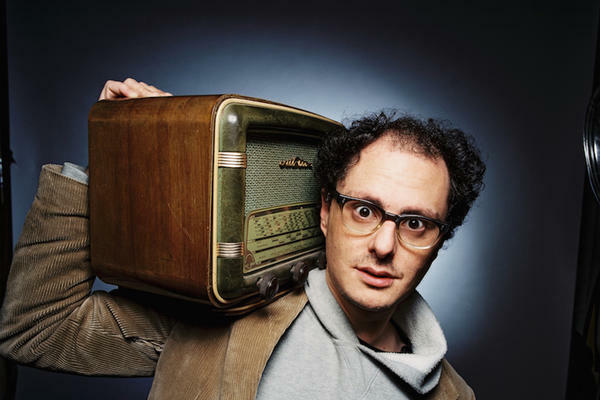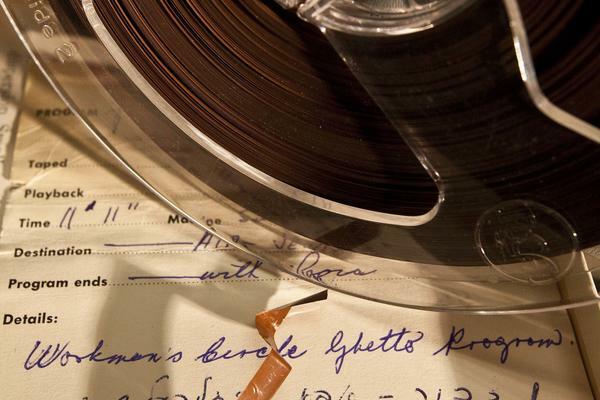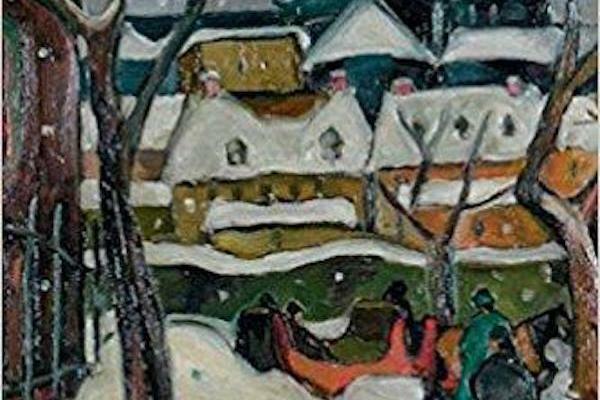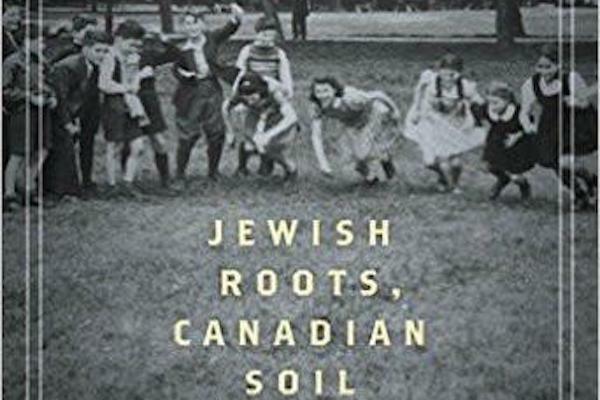Jewish Neighborhoods: Montreal
Stories of Jewish life in Montreal, from Our Wexler Oral History Project Collection
Yiddish has long had a home in Montreal—in fact, for the first half of the twentieth century, Yiddish was the third most spoken language in the city. In a province whose political and geographic landscape has been shaped by the negotiation between English and French, Yiddish language and culture hold a unique position.
While Ashkenazi and Sephardic communities have been present in the city since the eighteenth century, the largest wave of Jewish immigrants came from Eastern European in the mid-twentieth century. New arrivals found their homes in an urban landscape rich with Yiddish culture and where language and identity politics were central. After a show at the Dora Wasserman Yiddish Theatre or a lecture at the Montreal Jewish Public Library, Yiddish speakers could be found debriefing over a smoked meat sandwich or a signature, slightly honey-sweet Montreal bagel. You can still find many of these famous local eateries along the Main and in Mile End to this day! All around the city, Yiddish speakers would read and discuss the latest news from Der keneder adler (The Canadian Eagle), Canada’s leading Yiddish newspaper from 1907 to 1977.
Many prominent Yiddish writers, artists, and intellectuals made their homes in Montreal and were central to shaping its cultural institutions. Figures such as Rokhl Korn, Chava Rosenfarb, Melech Ravitch, Itzik Manger, Sholem Shtern, Israel Medres, Yaakov Zipper, M. M. Shaffir, and Khayele Grober had prominent roles in the Jewish Public Library, the Yiddish school system, and the larger Jewish community. You can hear many of the recordings of lectures by and interviews with Yiddish writers and poets who lived in or visited Montreal through the Frances Brandt Online Yiddish Audio Library. Yiddish poet Ida Maze, about whom we made a short documentary film, was also a prominent figure in Montreal’s Yiddish scene.
While assimilation and cultural shifts have gradually changed the landscape of the Yiddish-speaking community of Montreal, Yiddish culture continues to live on in many ways. Key historic institutions endure, Yiddish can be heard spoken in Montreal’s Hasidic communities, and younger generations are spearheading new efforts to preserve and reconnect to this incredibly rich dimension of Montreal’s history.
Enjoy the clips and short film below, and for more stories like these, you can browse our YouTube playlist of Montreal stories.
Yiddish and Jewish Culture as Part of the Fabric of Montreal
In this clip, creators of YidLife Crisis Eli Batalion and Jamie Elman reflect on the important place of Yiddish and Jewish culture in Montreal. They describe the ways that Eastern European Jewish culinary traditions, the shmate (rag) business, and various professions have all contributed to the city’s rich multilingual and multicultural landscape.
Clark Street and Saint Lawrence (Main) Street: Growing Up in Jewish Montreal
In this highlight (in Yiddish with English subtitles), Aaron Krishtalka—woodworker, professor, and a descendent of a family of Yiddish writers—describes the predominantly Jewish neighborhood in Montreal where he grew up. He remembers his father’s shop, the many bakeries, and the office of the Yiddish newspaper Der keneder adler on Saint Lawrence Street, which was known to many Jewish and French residents as “Main Street.”
“We Were Never Sure Who Was a Relative and Who Wasn’t”: Immigrant Life in Montreal
Bryna Wasserman, former executive director of the National Yiddish Theatre Folksbiene and daughter of Yiddish actress Dora Wasserman, describes her parents' immigration to Canada and her wonderful memories of the tightly knit Jewish immigrant community in Montreal. She reflects on the simultaneous cultural richness and economic poverty of those around her and the way community members took care of one another as well as newly arrived immigrants.
Der keneder adler: “Before Wolofsky, a Settlement; After Wolofsky, a Community”
Here, Jack Wolofsky, cofounder of KlezKanada, describes the role of his grandfather's newspaper, Der keneder adler, in building community for Montreal's Jews in the first half of the twentieth century. He shares the story of how his grandfather came to start the newspaper, the famous Yiddish writers who contributed to the publication, and the way he used it for community organizing. He also shares his memories of his grandfather’s relationship to Yiddish language and literature.
My Grandfather’s Book, Montreal fun nekhtn (Montreal of Yesterday)
Vivian Felsen, professional translator and granddaughter of Yiddish writer I. Medres, discusses how her grandfather came to write Montreal of Yesterday. She examines the various themes it explores about Jewish immigrant life in Canada before 1914 and describes the subtle humor with which the book is infused.
Yiddish Culture Was Their Religion: Founders of the Montreal Jewish Public Library
In this excerpt, Eva Raby—former director of the Montreal Jewish Public Library—describes the origins of Montreal's Jewish Public Library, "biblyotek un folks universitet (library and folks university)," and how Yiddish culture was like a religion for secular families like hers. She reflects on the tremendous academic opportunity that the founding of the library offered at a time when Jews were not allowed in Canadian universities.
Ida Maze: The “Den Mother” of Yiddish Montreal
This short documentary presents the life and works of Yiddish poet Ida Maze, an author who fostered and mentored a substantial community of Yiddish writers in Montreal. The film interweaves an oral history interview with her son, Irving Massey, a literary scholar who has written extensively about his mother's poetry and even translated a body of her work, with archival audio recordings of an event held in honor of Ida Maze at the Jewish Public Library of Montreal in 1956. Together, Irving's eloquent memories of his mother and the praising voices of Ida Maze's colleagues make for a compelling reprise of her life, poetry, and legacy.
Photograph at the top: Cover of Chantal Ringuet's "À La Découverte du Montréal Yiddish"
Courtesy of Jack Wolofsky




